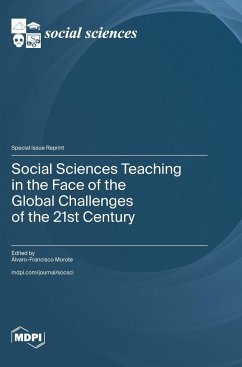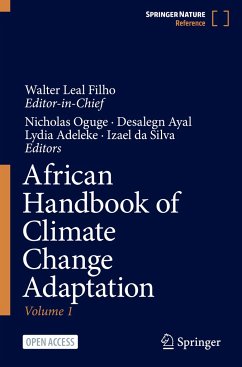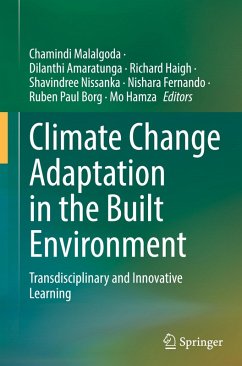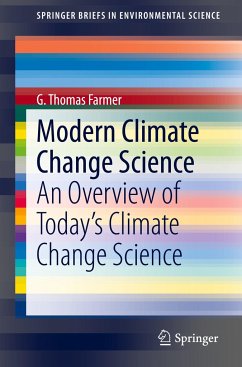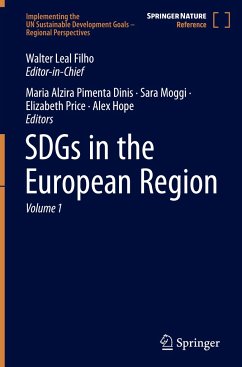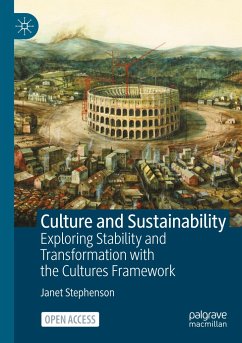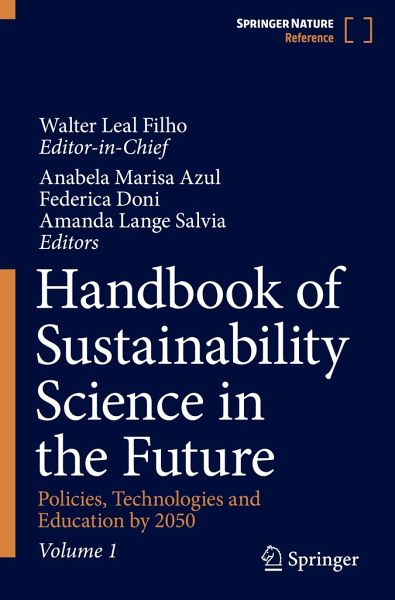
Handbook of Sustainability Science in the Future
Policies, Technologies and Education by 2050
Herausgeber: Leal Filho, Walter; Salvia, Amanda Lange; Doni, Federica; Azul, Anabela Marisa
Versandkostenfrei!
Versandfertig in 1-2 Wochen
687,99 €
inkl. MwSt.

PAYBACK Punkte
344 °P sammeln!
Humanity will have to cope with many problems in the coming decades: for instance, the world population is likely grow to to 8,8 billion people by 2035. Also, changing climate conditions are negatively affecting the livelihoods of millions of people. In particular, environmental disasters are causing substantial damages to properties. From a social perspective, the inequalities between rich and poor nations are becoming even deeper, and in many countries, conflicts between national and international interest groups are intensifying. The above state of affairs suggest that a broader understandi...
Humanity will have to cope with many problems in the coming decades: for instance, the world population is likely grow to to 8,8 billion people by 2035. Also, changing climate conditions are negatively affecting the livelihoods of millions of people. In particular, environmental disasters are causing substantial damages to properties. From a social perspective, the inequalities between rich and poor nations are becoming even deeper, and in many countries, conflicts between national and international interest groups are intensifying. The above state of affairs suggest that a broader understanding of the trends which may lead to a more sustainable world is needed, especially those which may pave the way for future developments. In other words, we need to pave the way for sustainable futures. Consistent with this reality, the proposed Encyclopedia of Sustainability Futures aims to identify, document and disseminate ideas, experiences and visions from scientists, member of nongovernmental organisations, decision-makers industry representatives and citizens, on themes and issues which will be important in pursuing sustainable future scenarios. In particular, the publication will focus on scientific aspects, as well as on social and economic ones, also considering matters related to financing and infra-structures, which are important in pursuing a sustainable future. The Encyclopedia of Sustainability Futures will involve the contributing authors in line with the principle of co-generation, from across a wide range of disciplines, e.g. education and social sciences, natural sciences, engineering, the arts, languages etc, with papers adopting a long-term sustainability perspective, with a time horizon until 2050. The focus will be on themes which are felt as important in the future, and the chapters are expected to interest and motivate a world audience. This book is part of the "100 papers to accelerate the implementation of the UN Sustainable Development Goals initiative"!



